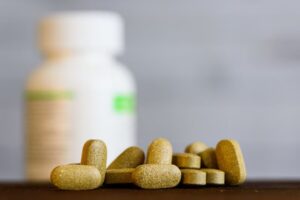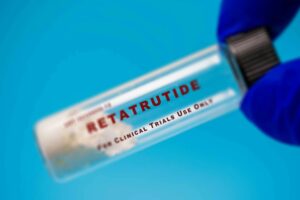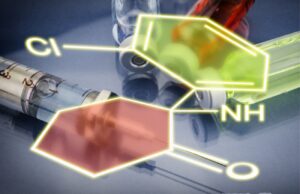As the body ages, recovery from exercise, illness, or daily stressors tends to take longer. This slower recovery is not simply about reduced physical stamina, but is closely tied to cellular health—particularly the mitochondria and the integrity of cell membranes. By focusing on specific strategies that support these systems, it is possible to improve resilience, energy, and recovery speed even as we get older.
The Science of Aging and Recovery
One of the most significant changes that occurs with age is a decline in mitochondrial efficiency. Mitochondria are the powerhouses of the cell, producing ATP—the body’s main source of energy. When the membranes of these cells become stiff or damaged from oxidative stress, inflammation, or environmental exposures, ATP production declines. The result: slower recovery, fatigue, and reduced performance.
This process is compounded by the natural decline in muscle mass, reduced hydration levels, and hormonal shifts that occur with aging. While younger athletes often recover quickly thanks to more efficient cellular repair mechanisms, older adults face greater challenges in restoring energy and repairing tissues.
Membrane Lipid Replacement: Repairing the Cellular Framework
A promising approach to improving recovery is known as membrane lipid replacement (MLR). This strategy focuses on repairing the phospholipid layers of cell membranes, which are vital for flexibility, communication, and efficient energy transfer. When these membranes are damaged, mitochondria cannot perform at their best.
Research has shown that restoring these membranes helps optimize ATP output and enhances detoxification processes, allowing the body to remove toxins more effectively while boosting resilience against stress and overtraining [PubMed].
Key Nutrients and Supplements for Recovery
Several nutrients play a role in maintaining and repairing mitochondrial membranes. These include:
- Phosphatidylcholine (PC): A major building block of cell membranes. Available in both oral and intravenous forms, it supports flexibility, repair, and energy production.
- Phosphatidylethanolamine (PE): Essential for ATP production, helping to stabilize mitochondrial membranes.
- Phosphatidylserine (PS): A key nutrient for brain health, stress reduction, and lowering cortisol levels, which supports both cognitive and physical recovery.
- Cardiolipin: Found specifically in mitochondria, this phospholipid supports the electron transport chain and efficient energy generation.
- Prebiotics such as fructooligosaccharides: Not only beneficial for gut health, but also indirectly support better nutrient absorption and overall recovery.
These supplements are increasingly being studied for their ability to improve recovery in both older adults and high-performance athletes. However, their effectiveness often depends on delivery systems. Liposomal encapsulation, for example, enhances absorption and protects these nutrients from being destroyed in the digestive tract.
Food as a Natural Recovery Tool
While supplements provide concentrated forms of key nutrients, whole foods are also powerful allies in recovery. Diets rich in healthy fats support the regeneration of cell membranes. Excellent choices include:
- Extra virgin olive oil
- Avocado oil
- Nuts and seeds
- Fatty fish such as salmon and sardines
These foods provide monounsaturated and polyunsaturated fatty acids that contribute to stronger, more resilient cell membranes. In addition, pairing fat-soluble vitamins (A, D, E, and K) with healthy fats enhances absorption.
Lifestyle Factors That Enhance Recovery
Beyond nutrition, lifestyle plays a critical role in how quickly the body recovers with age. The following practices are particularly effective:
- Regular Exercise: Promotes the natural turnover of cells, replacing damaged membranes with new, healthy ones.
- Hydration: Adequate water intake supports nutrient transport and detoxification.
- Sleep: Deep, restorative sleep is when the body repairs tissues and restores energy reserves.
- Detoxification Support: Exercise and natural detox protocols help the body eliminate weak or damaged cells, making room for healthier ones.
Together, these strategies create a powerful foundation for maintaining cellular health and recovery as the body ages.
Why Recovery Slows With Age
Declining mitochondrial efficiency is not the only factor in slower recovery. Aging is also associated with increased oxidative stress and reduced antioxidant defenses [NIH]. Over time, this imbalance damages proteins, lipids, and DNA within cells. Supporting mitochondria through diet, supplementation, and lifestyle can reduce this burden and help restore balance.
Practical Steps to Support Recovery
For individuals looking to improve their recovery process, here are practical, evidence-based steps:
- Incorporate healthy fats into daily meals to provide building blocks for cell membranes.
- Consider supplements such as phosphatidylcholine, phosphatidylethanolamine, and phosphatidylserine to support mitochondrial function.
- Prioritize sleep, hydration, and consistent movement.
- Seek medical guidance if exploring advanced options like IV therapy for systemic support.
- Opt for liposomal formulations of key nutrients to maximize absorption and effectiveness.
Video Summary
For more evidence-based nutrition and fitness tips, subscribe to our channel: https://www.youtube.com/@Vitality-and-Wellness
Looking for extra help with your fitness goals? Check out the personalized Nutrition Program at Parkway Athletic Club: parkwayathleticclub.com/nutrition
Disclaimer: This content is for educational purposes and does not replace personalized medical advice.



